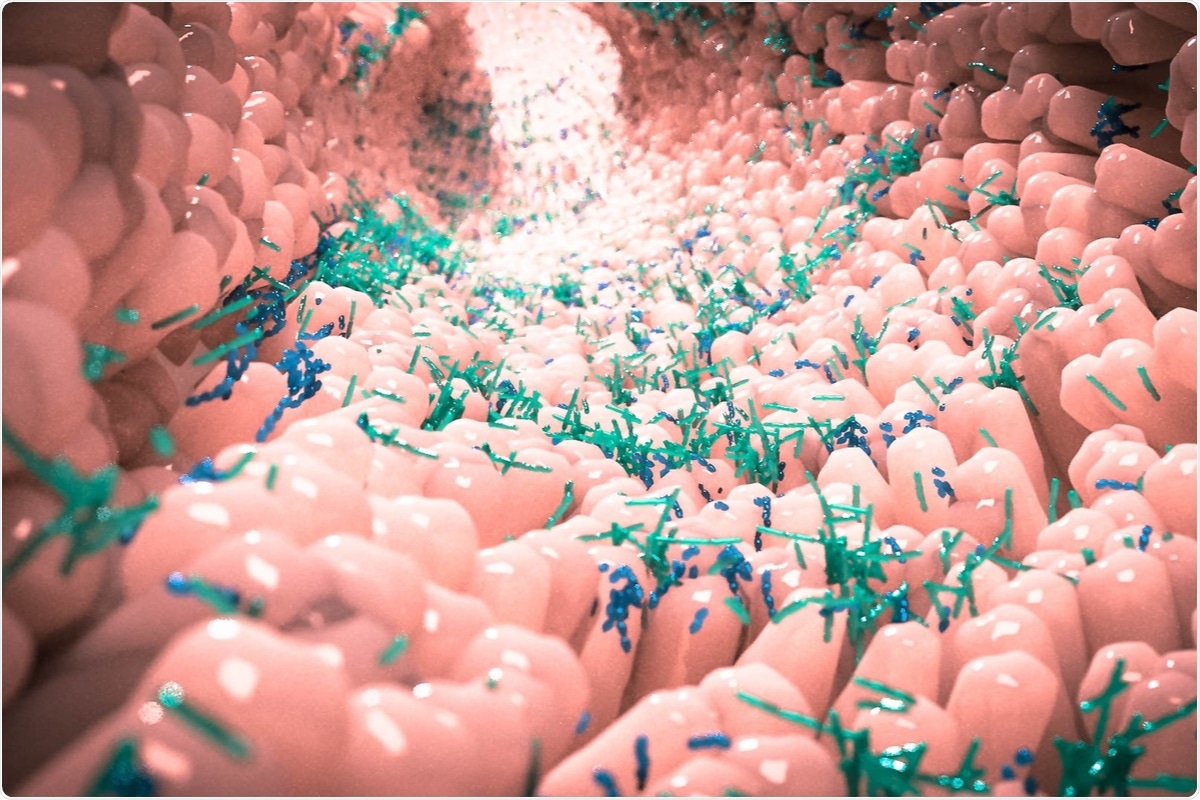Humira (adalimumab) side effects: Common, mild, and serious


An interesting study led by scientists in the U.S. has recently revealed that the microbial community in the gut is directly affected by severe acute respiratory syndrome coronavirus 2 (SARS-CoV-2) and that virus-mediated gut microbiome dysbiosis may cause severe secondary infections in coronavirus disease 2019 (COVID-19) patients. The study is currently available on the bioRxiv* preprint server.

A potential connection between gut microbiome dysbiosis and COVID-19 severity has recently been established. In this context, studies have found that SARS-CoV-2 infection may disrupt the microbial populations present in the gut. Gut microbiome dysbiosis is defined as a reduction in microbial diversity, as well as an imbalance between beneficial and pathogenic microbial populations in the gut.
In a significant proportion of COVID-19 patients, gastrointestinal complications along with loss of commensal gut microbes have frequently been observed. Commensal microbes are beneficial microbes that directly act on the host immune system to prevent invasion and colonization of pathogenic microbes. Recently, studies have found that COVID-19 patients treated with broad-spectrum antibiotics are at significantly higher risk of secondary infections by multidrug-resistant bacteria, which in turn is associated with almost 2-fold higher mortality from septic shock.
In the current study, the scientists have aimed to understand whether gut microbiome dysbiosis can increase the risk of secondary systemic infection in COVID-19 patients. Moreover, they have investigated whether SARS-CoV-2 infection can directly cause gut dysbiosis independently of hospitalization status and treatment regimen.
The study was conducted on transgenic mice expressing human angiotensin-converting enzyme 2 (ACE2). The mice were challenged intranasally with a low or high dose of SARS-CoV-2, and the fecal samples were collected daily to test bacterial populations. In addition, fecal samples were collected from SARS-CoV-2 infected patients to determine the composition of gut microbiome.
In mice challenged with high-dose SARS-CoV-2, the scientists observed significant alteration in gut microbiome, including a reduction of obligate anaerobic microbes and expansion of Verrucomicrobiales. Within one week of infection, they observed a reduction in alpha diversity in the gut microbiome. Importantly, in infected mice, they observed symptoms of severe systemic infection, including bodyweight loss, breathing difficulty, reduced activity, and hunched posture. Taken together, the findings indicate that SARS-CoV-2 infection directly causes gut microbiome dysbiosis in mice.
By analyzing bacterial compositions in fecal samples collected from COVID-19 patients from two different hospitals, the scientists observed a wide-range of bacterial diversities. They did not observe any difference in bacterial composition in fecal samples between the two hospitals. However, they observed highly variable bacterial compositions across samples. With further analysis, they observed frequent microbiome dominations, which is defined as a microbial community where a particular genus covers more than 50% of the population. These observations indicate severe gut microbiome injury in COVID-19 patients.
In 21 patients with systemic secondary infections, they observed reduced bacterial diversities. All of these patients were treated with antibiotics during hospitalization, with 80% received antibiotics even before detection of secondary infection. The analysis of fecal samples collected from these patients revealed that the genus Faecalibacterium was negatively correlated with systemic secondary infection. The bacterial species belonging to the Faecalibacterium genus are the most vital and abundant commensal bacteria of the gut microbiota. A reduction of Faecalibacterium genus is known to disrupt the functions of the intestinal barrier.
Furthermore, by comparing between fecal bacterial compositions and blood bacterial compositions, the scientists observed a high abundance of secondary infection-causing bacteria in corresponding fecal samples. This indicates that certain bacterial populations translocate from the gut into the circulation to cause secondary infection in COVID-19 patients. This could potentially occur because of virus-induced loss of gut barrier integrity.
The study reveals that SARS-CoV-2-mediated dysbiosis in the gut microbiome is directly associated with the systemic secondary infection observed in COVID-19 patients. Moreover, the study indicates that severe secondary infections can be induced by gut-to-blood translocation of bacterial populations following gut microbiome dysbiosis.
bioRxiv publishes preliminary scientific reports that are not peer-reviewed and, therefore, should not be regarded as conclusive, guide clinical practice/health-related behavior, or treated as established information.
Comments
Post a Comment